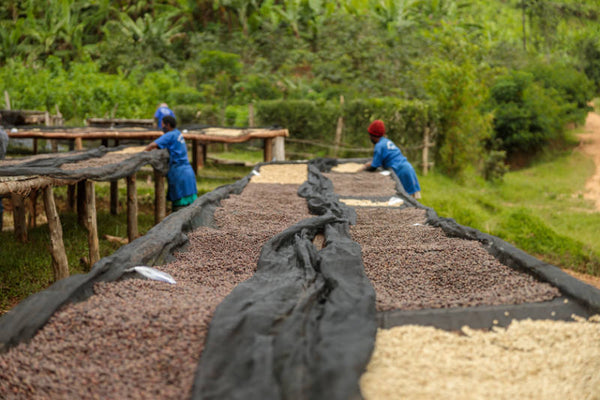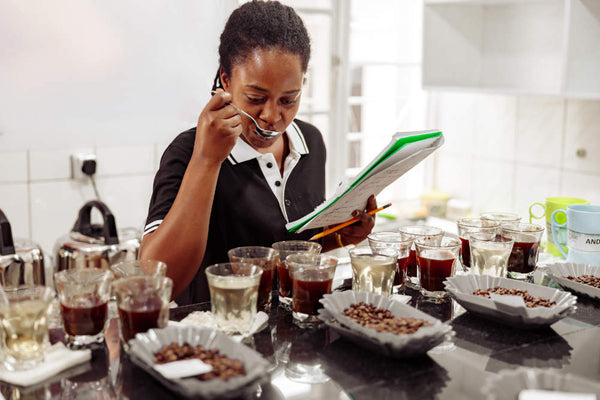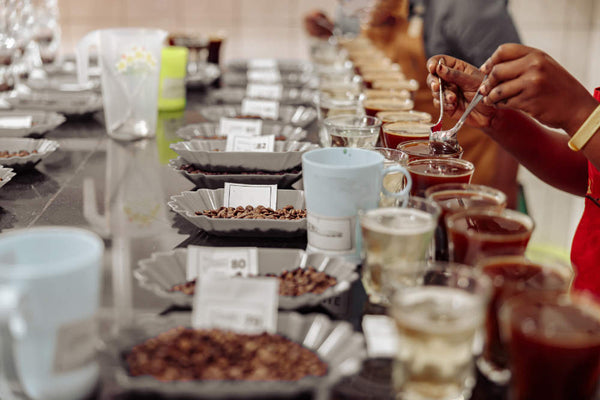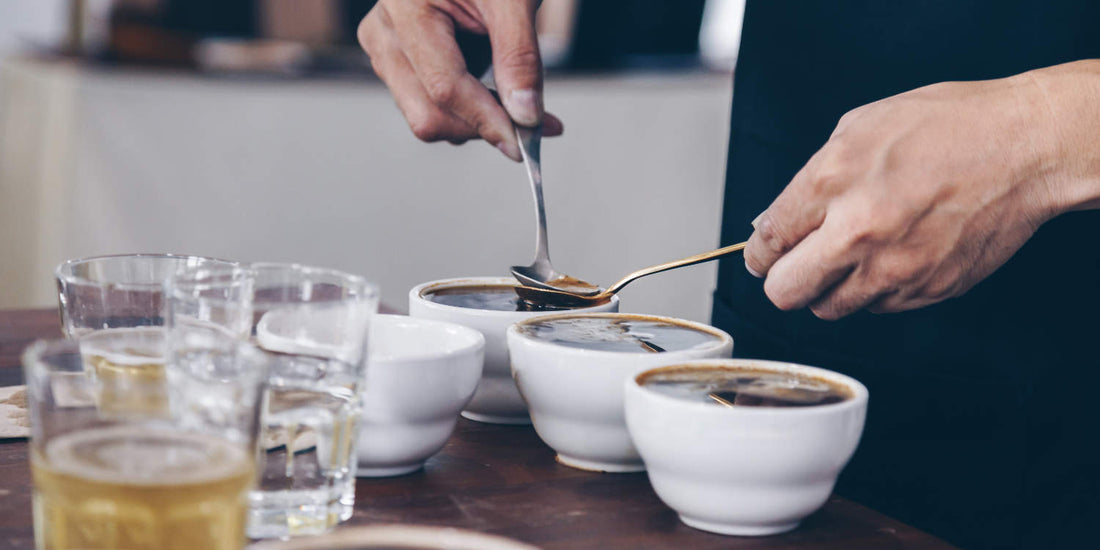Are you wondering what makes specialty coffee so special and rare? Specialty coffee accounts for only 10% of total Arabica production, but why is it considered a 'special' type of brew? Read this article to learn more about the criteria used to determine if a batch of beans qualifies as "specialty" - an exclusive classification that gives your coffee cup added distinction.
In a nutshell, the journey of coffee, from berry to cup looks like this: farmers cultivate and pick it, then separate the beans from berries before drying them and packing them. Afterward, they are transported to be roasted and sold online or in a coffee shop. Any mistake or lapse in professionalism along the way can damage its quality, however, when done correctly it can become specialty-grade!
Specialty coffee is the finest quality coffee that can be obtained and represents only 10% of all Arabica beans. To understand what makes specialty-grade coffee, we'll examine how it's determined, and who decides its grade, as well as provide tips for those looking to brew their specialty cup at home.
What is the path of the bean from the coffee berry to the cup
It all starts on the farm. First, a tree begins to produce fruit, and after that flowers emerge until finally turning into berries which eventually become ripe. For farmers to cultivate coffee of specialty grade quality, they must pay close attention not only to the healthiness of their soil but also to keep tabs on the nutrition level of trees. It is key that only healthy and mature berries are harvested as this will lead to an optimal outcome when brewed!

To ensure an impeccable cup of coffee, the harvested berries must be swiftly conveyed to a processing center and then managed with utmost care. Any mismanagement during the process, such as unequal drying speed or temperature can compromise its flavor. Hence these steps must be undertaken precisely and deliberately for perfectly roasted beans.
Prior to transport, dried coffee should be carefully stored. Temperature, humidity levels, and the amount of light must all be closely monitored for the beans to remain fresh. The chaff must also be removed from them before they have been placed into their packaging, otherwise, strong odors or bitterness may, unfortunately, permeate your brew later on due to incorrect storage methods.
The complexity of this endeavor is that many people are part of the process. It's not a guarantee that specialty coffee will be roasted and brewed to perfection if it has been grown and processed correctly. Just because something classifies in the "specialty" realm doesn't mean its flavor profile will stand out from any other coffee. To ensure an extraordinary cup, you must consider the knowledge base of roasters and baristas involved with each step along the way.
When it comes to winemaking, farms are typically in charge of the overall quality and taste. Winemakers must assume full responsibility for every step of production. With specialty coffee, however, these steps become even more important, beans must be faultless, roasted impeccably, and brewed correctly to achieve success.
Who and how determines the quality of coffee
The specialty classification is assigned to a single harvest of coffee, for example, the 2016 condition-specific lot from one farm in Kenya may qualify as 'specialty', yet due to certain issues, it could be denied this distinction come 2017.

To be qualified as a Q-grader, that person must pass 20 CQI (Coffee Quality Institute) exams. This class is in charge of evaluating coffee beans to determine their quality and grade them accordingly. The criteria for assessment include defects present on green beans, the presence of quakers, processing methods used, and drying standards observed.
The Q-Grader system is a comprehensive method of assessing coffee quality. It rates each bean on a scale from 0 to 100, taking into account not only beans excellence but also aroma, flavor, aftertaste, acidity, body composition, and balance in the cup as well as cleanliness of the serving vessel plus uniformity in taste sensation and sugary tone, any defects that may be present are included too.
The Specialty Coffee Association (SCA) conducts championships and workshops, yet does not rate coffee. Nevertheless, the organization has its own criteria for specialty brews:
- When evaluating every lot must score no less than 80 points. Lots that attain 90 points or more are considered to be exceptional coffees, mainly used in competitions and limited-edition blends rather than mass sales.
- For every 350g (12.5oz) of green coffee, there must be no primary defect. This means that it should be without any bean discoloration or fungus contamination.
- To ensure its quality, no more than five secondary defects can be present in 350g (12.5oz)of coffee, such as those caused by parchment, pulp, cracking, breaking, or insect damage.
- The Specialty Coffee Association recommends that there be no Quakers present in 100 grams of roasted coffee. However, the Coffee Quality Institute states that a maximum of three defects should be found per every 100g (3.5oz) roast. Robusta and specialty blends are excluded from this requirement.
How do we rate our coffee?
Our coffee deserves the utmost care and consideration, which is why we take several steps to guarantee its quality. Every lot of beans goes through a careful selection process – post-harvest, when it arrives at our warehouse, during the roasting profile setup, and in multiple control cuts. Our baristas are proud participants in each cupping session!

Our products are of the highest quality and adhere to strict standards. We only offer lots that score 80 points or higher, while micro lot varieties must be rated 85 points or above to make it into our selection.
If you're looking to purchase specialty coffee, what should be your top priority?
To ensure that all the hard work of farmers and roasters isn't lost, it is imperative to fully develop the flavor of specialty coffee. This requires taking into account the freshness of the beans, proper storage approaches, precise grinding techniques, and appropriate preparation methods. Doing so will allow every cup to truly showcase its award-winning excellence!
To learn how to craft the perfect cup of coffee, check out our comprehensive brewing guides!

